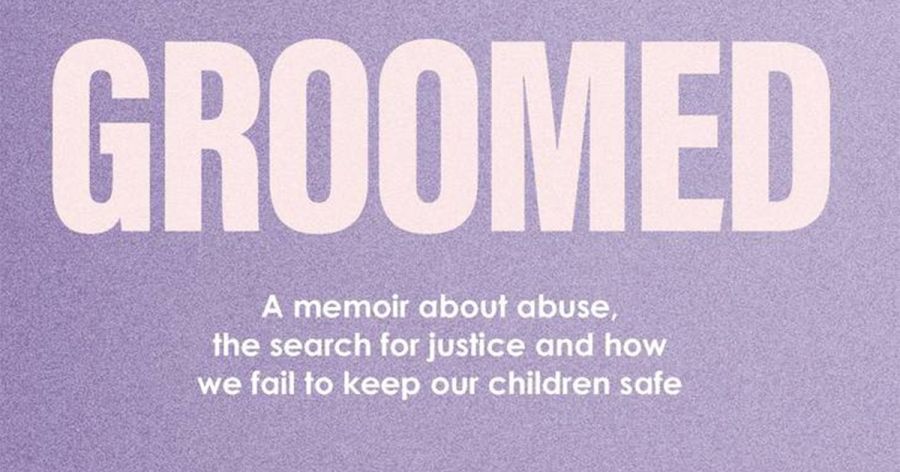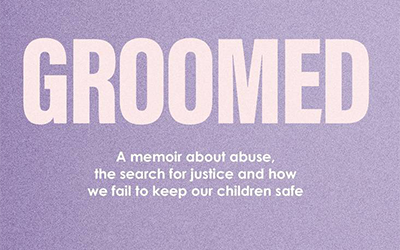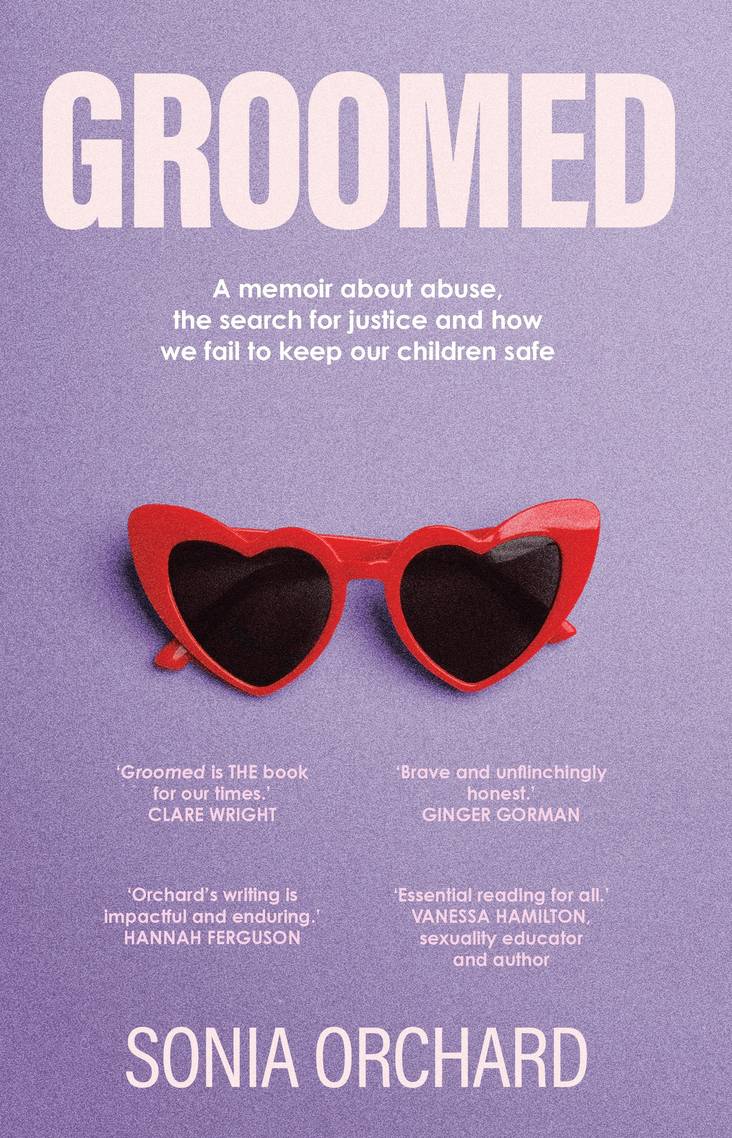
- Free Article: No
- Contents Category: Memoir
- Review Article: Yes
- Article Title: Port in a storm
- Article Subtitle: A memoir of early betrayal
- Online Only: No
- Custom Highlight Text:
There is no shortage of statistics pointing to the prevalence of misogyny and violence against women, not least the oft-cited figure that one woman is murdered each week in Australia. But sometimes anecdotes reveal the systemic nature of a problem in a way that figures cannot. In her memoir, Groomed, Sonia Orchard recalls attending a social gathering in St Kilda thirty years after she was abused as a fifteen-year-old high school student. At the party, she recognises a male teacher from her school, who, when he sees her, exclaims loudly in front of other guests: ‘I remember you! You used to think you were so hot, didn’t you? Strutting around in your little school dress.’
- Featured Image (400px * 250px):

- Alt Tag (Featured Image): Johanna Leggatt reviews ‘Groomed: A memoir about abuse, the search for justice and how we fail to keep our children safe’ by Sonia Orchard
- Book 1 Title: Groomed
- Book 1 Subtitle: A memoir about abuse, the search for justice and how we fail to keep our children safe
- Book 1 Biblio: Affirm Press, $34.99 pb, 356 pp
- Book 1 Cover Small (400 x 600):

- Book 1 Cover (800 x 1200):

- Book 1 Readings Link: https://www.readings.com.au/product/9781922863829/groomed--sonia-orchard--2025--9781922863829#rac:jokjjzr6ly9m
Groomed is about Orchard’s legal quest to convict her abuser – who was twenty-six when they met at a nightclub – but it is also an interrogation of a not uncommon view of teenage girls as coquettish, seductive, and flirtatious, and therefore partly to blame for assault. Orchard is adroit at disassembling this Lolita myth, an anachronistic trope that relieves men of responsibility for their desires and shifts fault onto minors. Orchard argues that this notion of the teenage seductress is so persuasive, so damaging, that victims may not realise they are being abused, despite being under the age of consent. They will doubt their instincts; they may even call it something else, such as love, kindness, or instruction. If their home life is shambolic, as Orchard’s was, then the abuser can appear as a magnanimous saviour, a port in a storm. As Orchard writes: ‘Attention – especially if a girl isn’t getting a lot of it elsewhere – feels good. I have spoken to many women who were abused during their teens and have often found that they only start to question the stories they’d told themselves decades later.’
It takes Orchard three decades and an encounter with an astute psychologist to even acknowledge the abuse, which she had previously never questioned. Orchard starts therapy ostensibly to deal with her father’s death, but the psychologist senses a deeper wound and heads straight for it. ‘Tell me about your first experience with sex,’ she asks her. When Orchard replies, matter-of-factly, that she had a relationship with an older man when she was fifteen, the psychologist is shocked, telling Orchard that she had been violated. Orchard is perplexed. ‘No I wasn’t!’, she says, laughing. How prudish, she thinks. But Orchard realises she is shaking violently. ‘This is trauma,’ the psychologist notes.
It is not uncommon, Orchard tells us, for survivors of sexual assault to have little or no memory of the abuse. Traumatic memories are stored differently in the brain, organised via what Orchard refers to as a ‘defence mode’. It means that certain aspects of the event, such as the sound of a door shutting or a distinct smell, will be stored in the long-term memory, but the facts will often be missing, a state clinically referred to as dissociative amnesia. These memories have no clear beginning or end, they evade story. Orchard underscores how this affects her:
I occasionally have moments when I feel my heart rate rise – not quite panic, but a feeling of threat – in response to the sight of a rose tattoo on the freckly skin of a bicep or a worn bluestone doorstep. There is clearly some kind of memory there, but nothing I can properly access in order to provide a narrative.
The neurobiological effects of abuse are disastrous. Orchard notes, in particular, how unwanted sexual contact robs a person of their sense of bodily safety: ‘This person is not just encroaching on your personal space, breaking into your house, they are now inside you’ (Orchard’s italics.) Orchard has done well to create a life with love in it – her husband, her work, her three daughters – but she is painfully aware of how abuse has circumscribed her life. The adolescent drinking and drug-taking, for certain, but in other ways, too: the law degree never completed, the job opportunities that were ignored. During her twenties, Orchard found it hard to stay in one place. She was wary of long-term relationships (‘one month seemed to be my maximum’). If it were not for her desire to have children, Orchard wonders whether she would still be roaming, in flight from her thoughts.
The legal system, as Orchard was to discover, can be a place of re-traumatisation, in which the complainant must not only recount the abuse, but withstand the sustained questioning of the defence team, as it mines for errors and missteps. The nature of a traumatised victim’s memory makes securing a conviction especially difficult; a complainant can strike a court as concocting answers rather than merely struggling to recall decades-old abuse. Orchard’s criminal case is bolstered by her teenage diary, which contains forensic descriptions of her abuse. But, as the police warn Orchard, the diary doesn’t guarantee a conviction. As the court case progresses, Orchard’s emotional detachment, her insouciance, alchemises into rage. Where she felt nothing, she finally feels something: a molten anger that sends her into the bush near her house to run and cry and yell. Finally, Orchard receives care, a salve of sorts, but not where she expects it. A cancer diagnosis at the same time as Orchard’s court case prompts an unflattering comparison between the process of justice and the healthcare system. The former re-traumatises her, the latter helps her to heal.
Groomed references the struggles of high-profile sexual assault survivors such as Grace Tame, but thankfully Orchard doesn’t spend much time teasing out these corollaries. The achievement of the memoir is its deeply personal and self-interrogative tone, and Orchard’s unflinching honesty about her motivations and the way social attitudes shaped her view of her own abuse. There is a visceral, charged quality to Orchard’s prose, but her anger and outrage are buttressed by methodical research and stinging insights.
Long after I finished the book, I kept returning to another pertinent anecdote of Orchard’s, this time involving a conversation with a criminal lawyer friend. Oscillating between pressing charges or moving on with her life, Orchard tells her friend that she feels guilty about potentially destroying her abuser’s life, noting that he is ‘a family man now’.
‘They all are,’ is her friend’s reply.


Comments powered by CComment